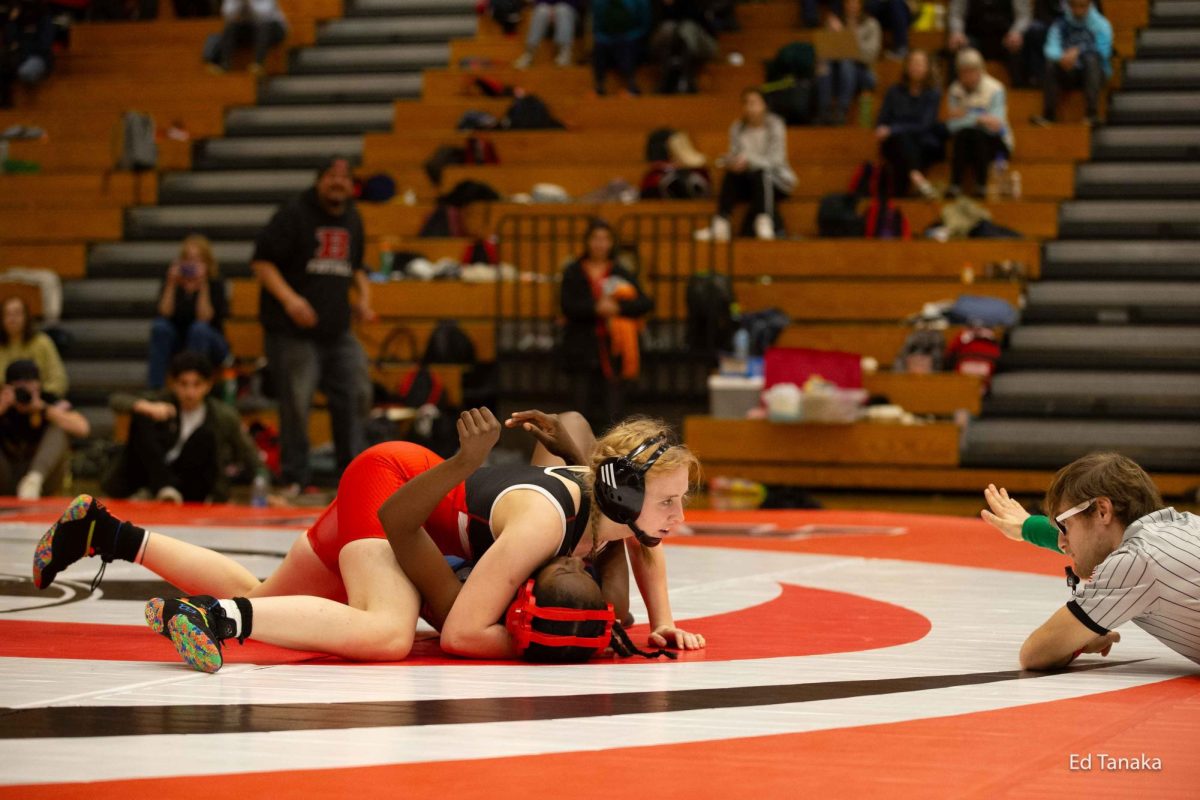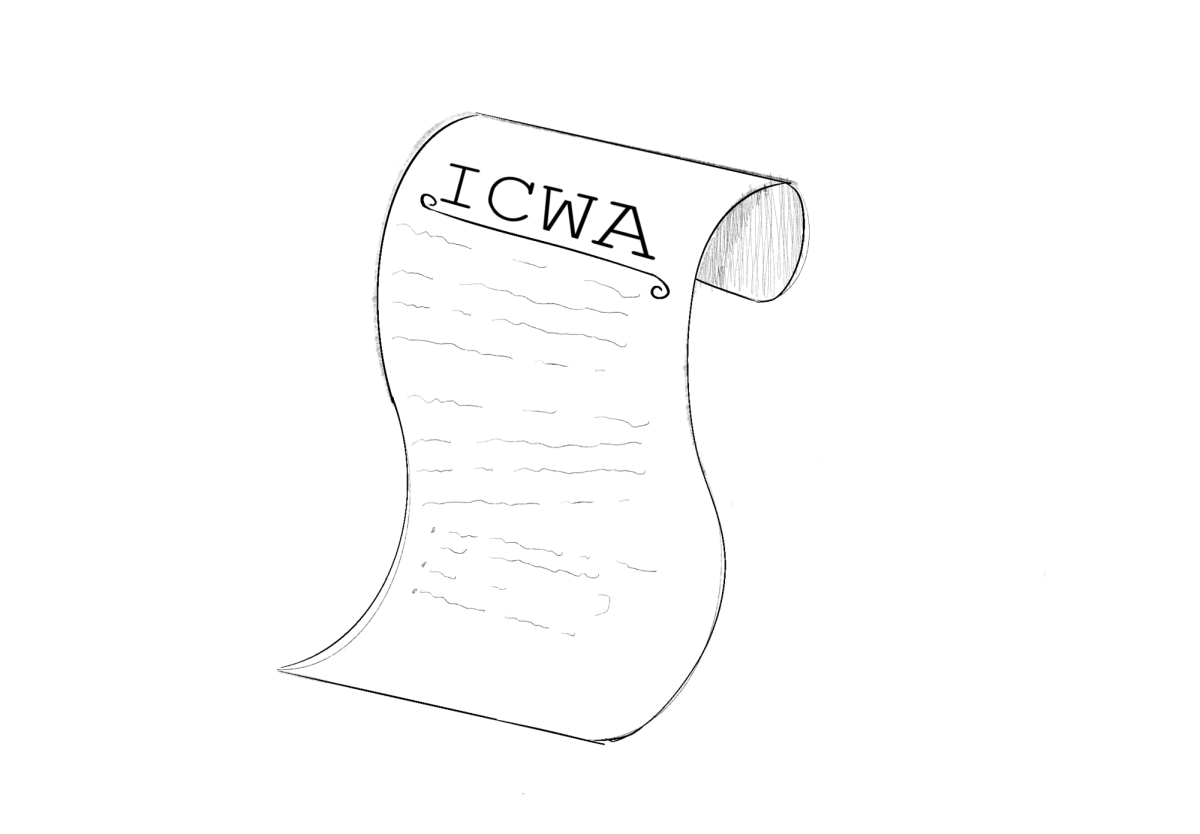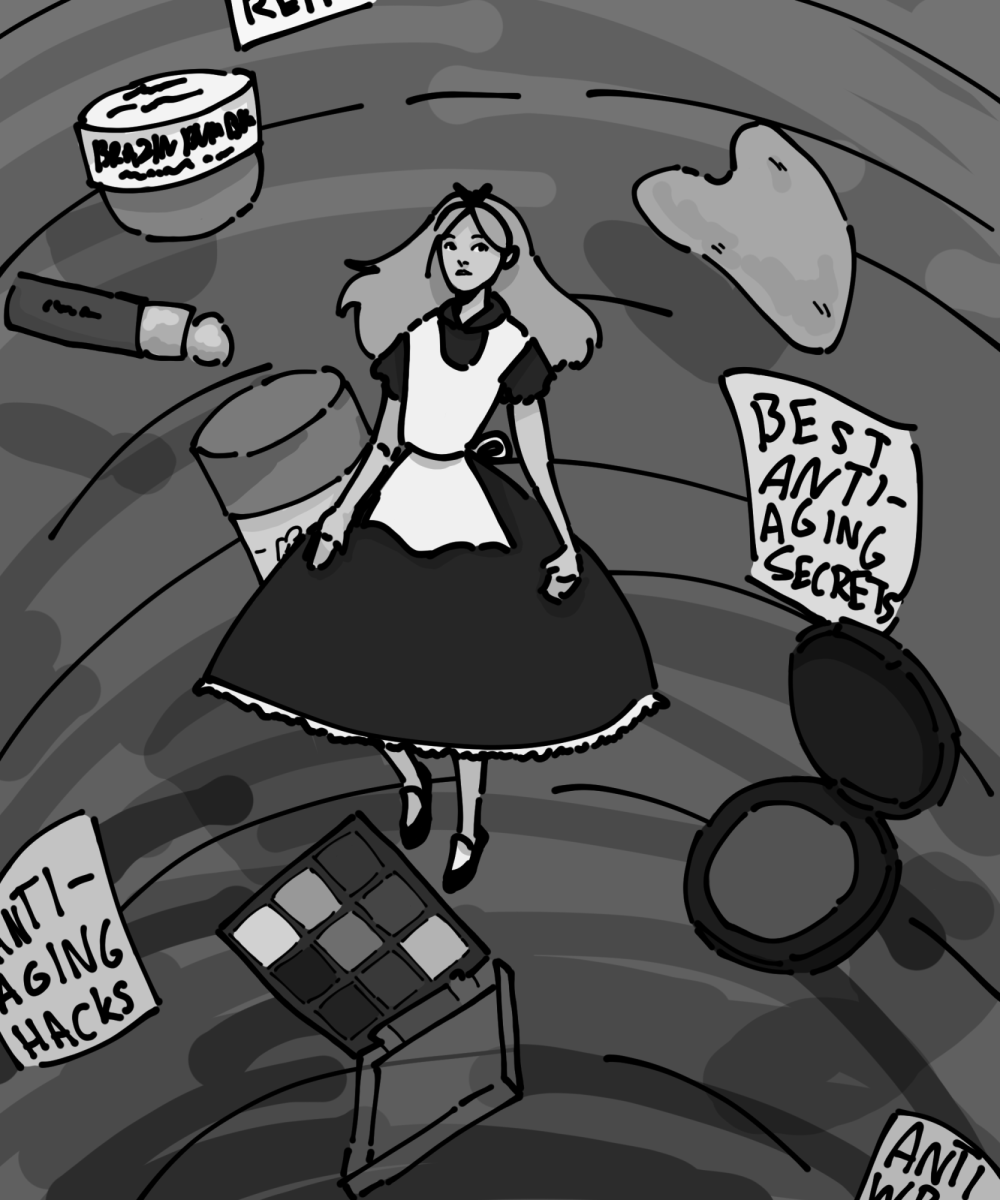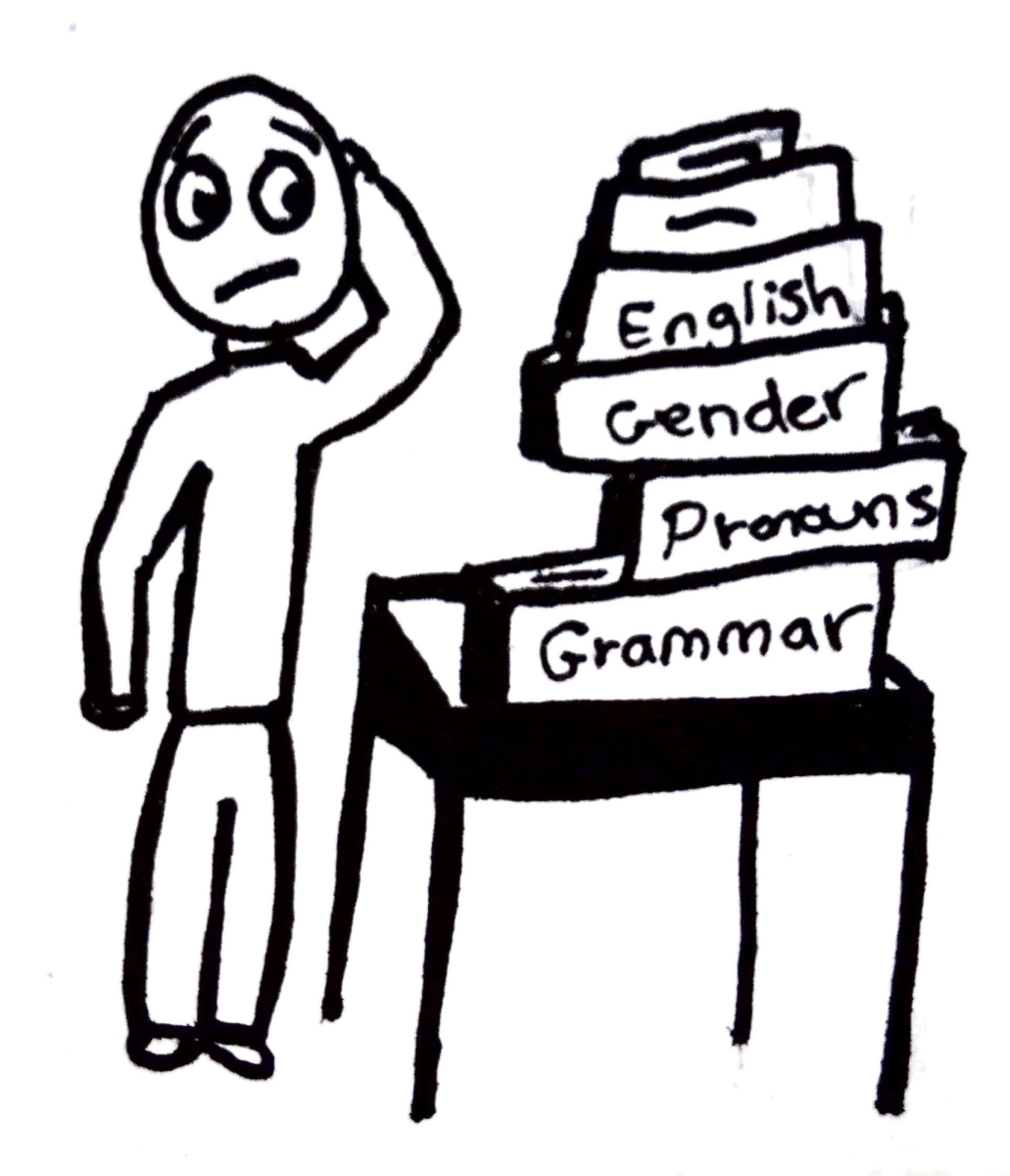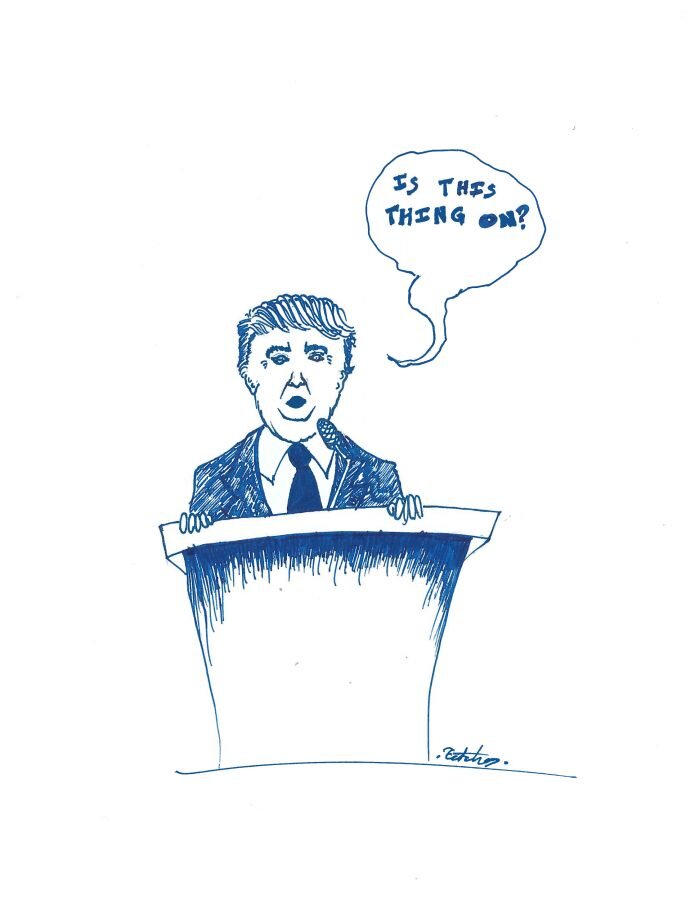A rancorous display captures the desperation of a bleak and hateful election cycle
Oscar Zahner, Political Correspondent
Originally published November 5, 2016
Fletcher Anderson
The debate seemed to happen in reverse.
Donald Trump’s campaign was in tatters as he approached the podium on Sunday night. The recently leaked videotape of him bragging about sexually assaulting women in 2005 had drawn condemnation from politicians on both sides of the isle. GOP politicians were abandoning him in unprecedented numbers, including Governor John Kasich, Ms. Carly Fiorina, and, most notably, Senator John McCain. Across America, there were uncertain whispers that Trump might be finished.
Clinton approached the stage with determination. Her opponent was at the most vulnerable he had ever been. With less than a month until the election, she had one definitive chance to bring down the knife.
The tension was palpable. Both candidates were nearing the deciding moments of the election, and passions had never been higher. The air of the debate stage was thick with discontent and disdain. The candidates did not shake hands.
The first question concerned the examples the two candidates were setting for children. Even as Clinton and Trump gave their bland, inoffensive non-answers, a looming presence seemed to hang over the two candidates.
And then Anderson Cooper brought up the tape.
The storm that followed was the bitterest, most personal half hour of this historically bitter and personal election. Trump doubled down on his “locker-room talk” excuse, reminding the audience that it was “just words.” Hillary Clinton pounced, citing Donald Trump’s repeated history of sexism and general toxicity. “This is who Donald Trump is,” she told the crowd.
Donald Trump was in a corner. So, in an incredibly ill-advised and risky political maneuver, he began viciously attacking Bill Clinton’s record with women. He lashed out at Hillary over the unsubstantiated allegation that she had “silenced” her husband’s rape accusers. He even attacked her for having been appointed to represent the rapist of a twelve-year-old in court, who ended up pleading guilty.
His assault on Hillary Clinton crescendoed to dystopian levels when he threatened to appoint a private prosecutor to investigate her and dedicate his resources as president to put her in jail. Trump’s campaign has always faced accusations of demagoguery, but never has he invited the comparison to a dictator as obviously as he did when he threatened to jail his political opponent.
Trump’s desperation was most clearly showcased in his childish feud with the moderators. “Why haven’t you asked her about her emails?” he moaned, violently grasping for some measure of the false equivalence that he had successfully used to downplay his scandals in the past.
Again, we saw the petulant Trump from the aftermath of the first debate, but this time his cries of unfairness were even more blatantly petty. He constantly complained about not being allowed to go over time, while angrily shouting about how the moderators were letting Clinton get away with it. Every time he was scolded for breaking the debate rules, he cried conspiracy. “It’s three against one, great,” he said, in a particularly heated exchange with Anderson Cooper.
But as it became apparent that Trump’s usual strategy wasn’t going to dig him out of the hole the tape had placed him in, he did something I never thought I would see him do. He tried to shift the debate away from personality and towards policy.
Donald Trump worked his way around answering a question about the video, and frantically tried to save face by suggesting that ISIS posed a far greater threat to America than some “decade-old tape.” It was a laughably obvious segue from a subject Trump was uncomfortable with, but Donald Trump’s message was clear; he wanted the debate to focus less on the candidate’s identity, a fight he was clearly losing, and more on their plans and visions for America.
This was a risky gambit for Trump, as Hillary has consistently had the upper hand over him in terms of policy. One of Donald Trump’s greatest shortcomings in the first debate was his inability to defend his policy positions in a focused and coherent manner, but it was clear that moving the debate into marginally less uncomfortable territory could help him pick up the pieces of his campaign.
But no matter how hard he tried, no matter how forcefully he dodged the moderator’s questions, Trump couldn’t seem to escape the relentless barrage of character attacks and image politics that had been his trademark style less than a week before.
And then something remarkable happened. Hillary Clinton changed the debate. When asked to respond to Trump’s attempts to revive the 1998 Lewinsky scandal, Hillary refused to let the soap opera feud carry on. “When they go low, you go high,” she said, quoting a private conversation with Michelle Obama. It seemed a paradoxical move–Clinton was backing off an issue that was clearly embarrassing Trump.
After this, the tone of the debate shifted. The two candidates fell back into the same dance as the first debate. Clinton was back to defending her term as secretary of state, while Trump was back to lambasting the entire political establishment.
In fact, Donald Trump’s relentless effort to associate Hillary Clinton with all the shortcomings of the American political system was seldom as apparent as it was when Trump directly suggested that Hillary Clinton was responsible for all of our government’s failures in the thirty years she’s been involved with American politics. “If you were a strong senator, you wouldn’t have let those things happen,” he said in one of his many interruptions.
It may seem illogical for Trump to rely on image politics after the disaster that has followed him since Friday. But even if the release of the Trump tape was the last straw for many conservatives, it hasn’t mitigated the outsider image that Trump has developed a habit of falling back on. And yet, Trump’s poor performance in the first presidential debate suggests that this image alone probably won’t win him the election.
In effect, Trump is drowning. He has less than a month before the election, which is not enough time for him to strike a more humble tone or change his image to court undecided voters. And the release of the tapes has strongly weakened his personal credibility, meaning his outsider persona is all he has left. The debate has shown us that Trump is forced to double down on a losing strategy, alienating moderates, undecideds, and independents.
But from the outset, Trump’s impending catch-22 wasn’t so obvious. Many commentators noted that Trump seemed to have regained his composure and weaseled his way out of the controversy of the tape. What we saw in the last hour of the debate was the same old Trump, not the Trump that was staring at his impending doom.
Unfortunately for Mr. Trump, that may not be enough. His style of argument left the nation with the same bitter taste in its mouth it had during the first debate. Ultimately, in a race that is looking more and more foreboding for him, he failed to gain any ground. His poll numbers, already dismal, have only gone down after the debate.
The first half hour of the debate was disastrous, but the hour afterward was grating. It was merely a rehash of the first debate, only in a new arena and with new stakes.
This is why the last question created such a poignant moment, or at least the illusion of one. After the debate had careened through lies and hollow promises about health care, misgivings and misinformation about Russia and Syria, and a vast array of heated interruptions and hollow buzzwords, a man named Karl Becker asked the two candidates to name one thing they respected about the other.
Hillary Clinton said she respected Donald Trump’s children. Donald Trump said he respected Hillary Clinton’s tenacity.
And so the debate, which had began on such cold and uncertain terms, ended on a strangely affable note.
This made the debate feel like an inverse of the last one. Where the candidates shook hands and talked of policy in the opening of the last debate, here they stared each other down and almost immediately ripped into each other over their intensely personal scandals. Where Trump gradually fell apart in the last debate, here he appeared to slowly pull himself together. Where the last debate had ended with bitterness and resentment, here the debate ended on a note of mutual understanding.
And that matters.
Trump did not win the debate by any measure. He was everything that critics complained about in the first debate: rude, immature, unfocused. But, because of the way the debate unfolded, he was spared from complete annihilation. If Trump was unable to gain ground in the debate, Clinton was unable to deliver the killing blow to his campaign.
Hillary Clinton could have easily harped on the Trump tape for the entire debate–it’s certainly an issue that has seemed omnipresent over the past couple of days. But character assassination has never been Clinton’s style, which is why she allowed Trump to change the debate’s direction.
In essence, Trump manipulated Hillary’s propensity to take the high road so he could slip out of a tight spot. This could end up creating the illusion that Trump has successfully put the tape behind him, and may alleviate some of the fallout from the vast number of GOP officials who have jumped ship. This doesn’t mean he won, it only means that the debate has left the Trump campaign on shaky ground.
Everything is still tentative at this point. If the debates have shown us anything, it’s that hope for clarity and finality is unrealistic at best and Panglossian at worst. This election has removed the facade from our partisan and irrational perception of politics. The persistence of Trump even after such damning evidence of misconduct tells us this much. After every scandal, every debate, and even after the election, the ideas and prejudices that Donald Trump and Hillary Clinton represent will remain. Ultimately, the real takeaway from the second debate is that between the bitterness of our politics, and the absurdity of this election in particular, the fleeting moments of respect that were shown in the last seconds of the debate are all the common ground we have left.
![West Seattle High School’s (WSHS) Chinese program is closing down and teachers in the program are informed to transfer to a different high school. At WSHS, 475 both former and current students have signed a petition to help teacher Ying Yu continue her Chinese program. She shares that initially, the program offered only four classes with 90 students but with her initiatives, the program grew to be full-time with 154 students and 137 students on the waiting list. (Seattle Public Schools Board Meeting YouTube Channel: Seattle Schools Board Meeting May 8, 2024, [58:25])](https://ballardtalisman.org/wp-content/uploads/2024/06/Screenshot-2024-06-14-134038.png)


![“Link Crew is meant to be a way for [upperclassmen] to help ninth graders with the transition to high school,” Laura Lehni, language arts teacher, ASB advisor and Link coordinator, said](https://ballardtalisman.org/wp-content/uploads/2024/05/IMG_4601-1200x800.jpg)







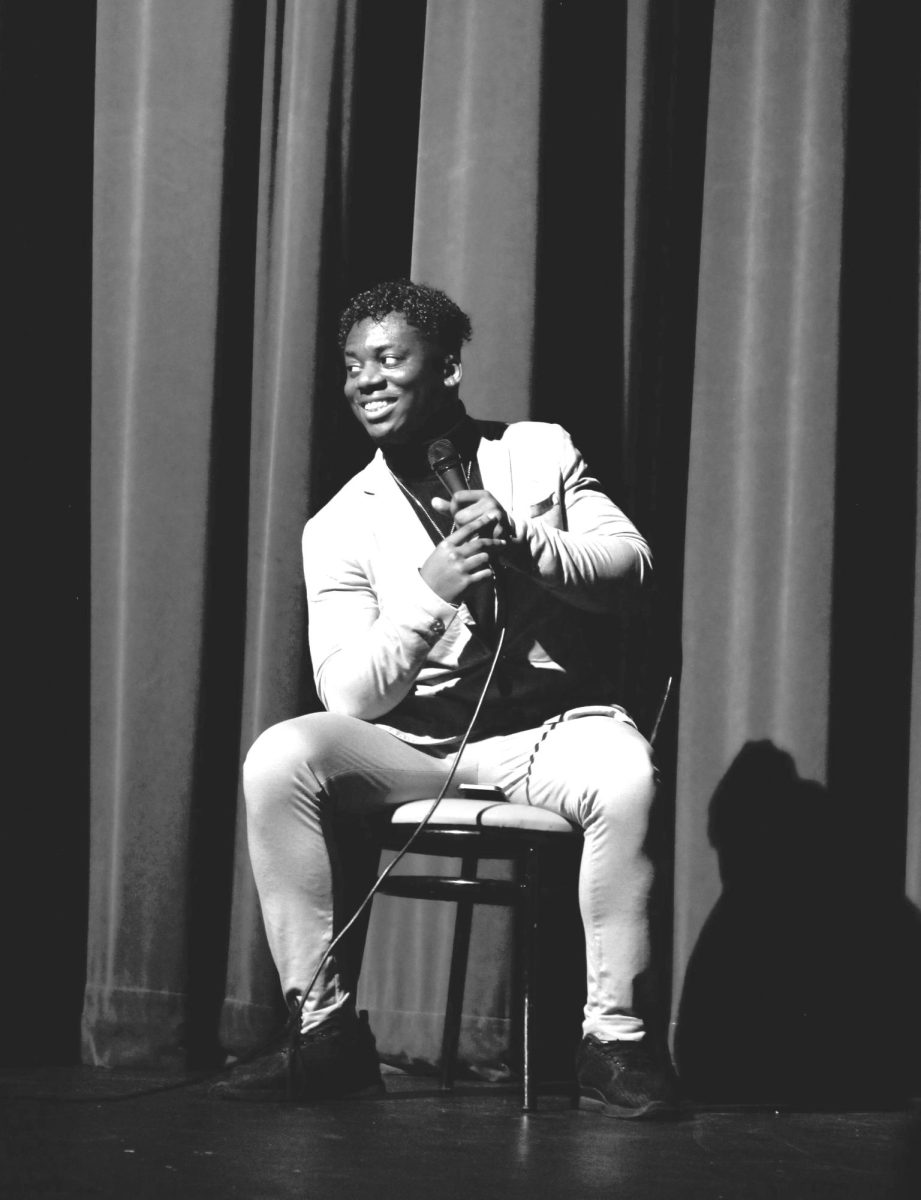


![Henry Willy [pictured left] taking the field with his teammates in a 10-11 loss vs. Saas.](https://ballardtalisman.org/wp-content/uploads/2024/05/IMG_2431.jpg)

